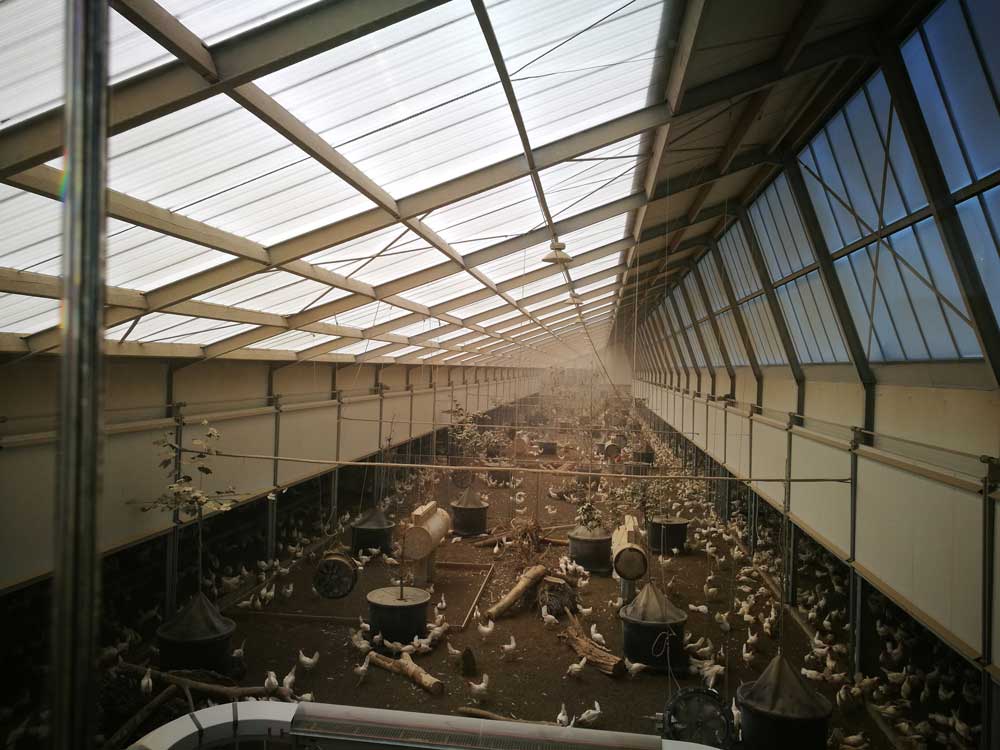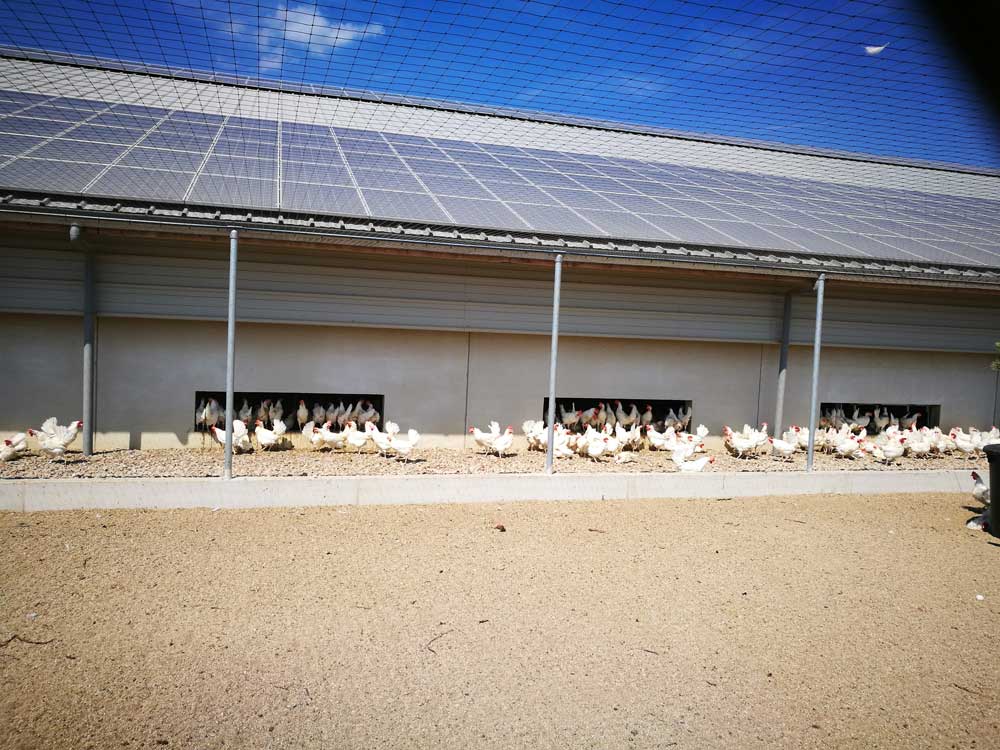Eggs from high welfare layers sold-out every day
By Norman Dunn
The concept for animal housing in combination with Nijsen-Granico’s “food for feed” concept designed by Ruud Zanders and his partners is now described as “the best layer barn in the world for environmental protection and bird welfare”: a breakthrough rewarded with an egg and chicken meat supply contract from one of Europe’s biggest discounters.
The Kipster concern only started production in autumn 2017, with 24,000 layers and housing based on the free-range system, with outside run and a stocking rate of 6.7 birds per m2 based on the indoor accommodation but not counting the outside run covering 2160 m2.
Already planned is processing of the layers into “Kipster chicken burgers” at the end of each egg production cycle. And this business is one of the first in the world to reject immediate killing of male layer chicks. In this way the company offers a publicly acceptable solution to what welfare groups see as one of the greatest problems in egg production nowadays.
Male chicks live on
Instead, Kipster retains the male chicks, feeds them to 2 kg liveweight on a nearby farm and supplies the meat for so-called Kipster "Rooster burgers" to the discounter that already sells Kipster eggs: the German firm Lidl, one of the largest food retailers in Europe with a claimed 20 % of the retail food market in the Netherlands.
»A crucial and unique aspect of the Kipster idea is that the company worked out the concept of low carbon footprint egg and meat production coupled to highest bird welfare before anything else was undertaken,« explains Karel van der Velden, business development manager with feed suppliers Nijsen-Granico. »Only then did Ruud Zanders and his partners seek a retail company that was willing to buy the eggs. Building of the free-range barn at Castenray was not even began until a 5-year egg supply contract had been signed by the retail organisation.«
Forward planning went as far as egg packaging: in fully-degradable starch cartons for five eggs. The Kipster egg price currently (January 2019) in the Lidl is 23.8 cents. »This price is somewhere between the consumer cost of organic and free-range eggs in this country and certainly not a cheap product,« continues van der Velden. »But Lidl and Kipster agreed from the start that what they want to market is the overall concept of feed, husbandry and housing for high welfare and low carbon footprint.«
Rooster burgers – best sellers
That this is the right strategy is being continually confirmed by the retailing giant, Karel van der Velden reports. »Lidl tells us that Kipster Rooster Burgers are selling well. As for the Kipster carbon-neutral eggs, these are usually completely sold out every afternoon!«
Inside the poultry barn, the aim is to replicate chickens‘ natural environment with living trees growing, and climbing structures for keeping the birds active in the outside area. A transparent roof allows in as much daylight as possible. There’s an area that is darkened to ensure a natural roosting and egg laying environment. Exhaust air is filtered and washed to keep ammonia emissions down to 0.025 kg per chicken. Fine particle emission is reduced by 95 %, says the company. A 60 % surplus of required energy is produced from 1,078 solar panels on part of the roof.
»White egg producers (Dekalb Whites) are chosen because the hens are lighter than brown egg layers and give a better feed conversion,« continues van der Velden. Planned laying cycle is 85 to 90 weeks. The male layer chicks are fed to 17 weeks on another farm. Because they are from an egg laying strain it takes much longer to reach slaughter weight than the seven to nine weeks required for the average 2 kg meat chicken. »Apart from the welfare aspect of male chicks not being immediately killed, this concept once again reduces waste potential in human food production,« he points out.
Another innovation: animal welfare organisations were consulted and involved in the Kipster concept right from the start. Europe’s leading animal welfare society “Eurogroup for Animals” representing 54 individual organisations across the continent, has awarded Kipster the only three star welfare accolade it has ever given to an egg production unit.
This carbon-neutral, high welfare concept is certainly proving attractive to Dutch consumers, concludes Karel van der Velden. »One sure sign that we’ve got everything right is that other leading retailer organisations are now planning carbon-neutral egg production projects.« As for Kipster‘s contract partner Lidl: »This retailer says it could sell many more Kipster products and a direct result is the planning of another Kipster egg and chicken meat production unit. This time in the vicinity of Amsterdam.«




